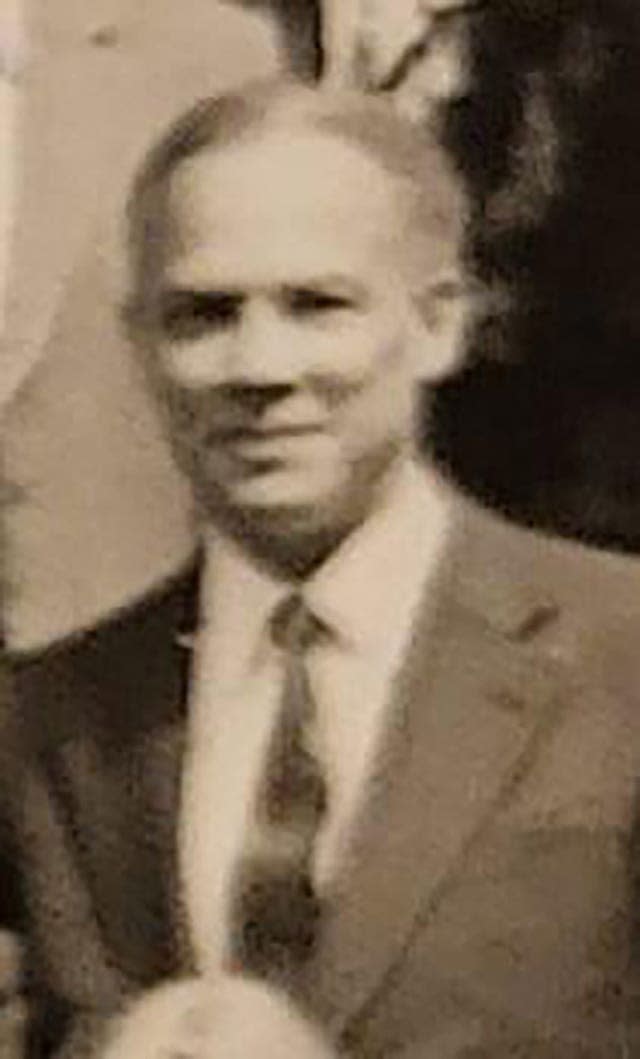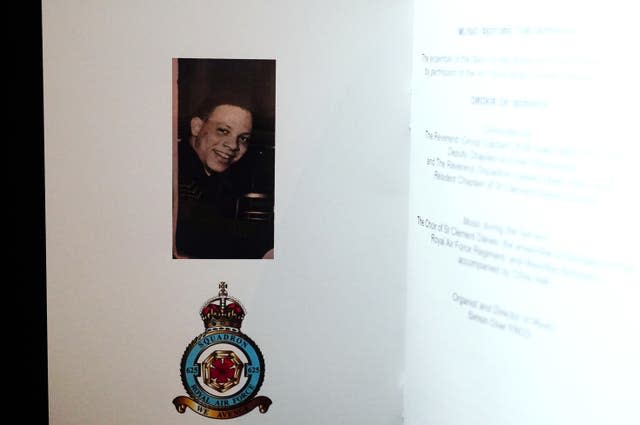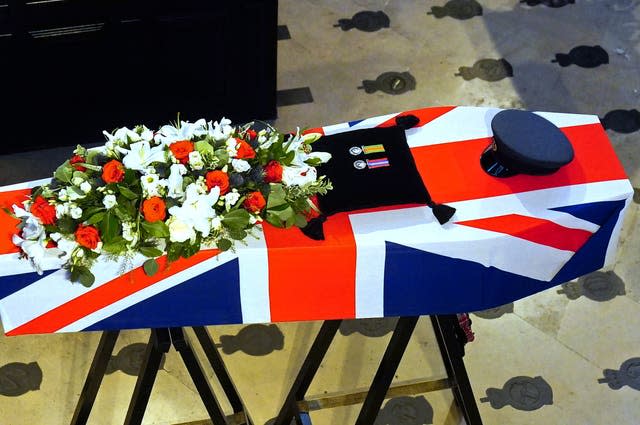Mourners gather for funeral of black RAF pilot who flew in Second World War
Hundreds of mourners have gathered at an historic central London church for the funeral of one of the last black RAF pilots to have fought in the Second World War.
Flight Sergeant Peter Brown died alone aged 96 at his home in Maida Vale, west London, in December last year.
His funeral service is being held at St Clement Danes Church on The Strand, central church of the RAF, which can seat 600 mourners.

Mr Brown had appeared destined for a low-key funeral at a 140-capacity chapel in Mortlake, south-west London, in March, until a council appeal to trace his relatives was picked up by historians, military researchers, genealogists, community groups and the media.
Relative Brooke Alexander had travelled more than 4,000 miles from the Jamaican capital Kingston to attend the funeral on Thursday.
Representatives from Caribbean community organisations and those who helped trace his relatives were also in attendance, as well as celebrities including Batman Begins and Outlander actor Colin McFarlane, Top Boy star Michael Ward.
Trevor Michael Georges, who plays Ed Bailey in Coronation Street, said: “When I heard about Peter, I thought it was a very sad situation and I had to come to pay my respects.
“As a youth I was actually going to join the RAF. I was in the cadet force. But at the last minute, for various reasons, I changed my mind and decided to become an actor.
“Around 6,000 Caribbeans joined in the war effort. In a situation where every little bit helps, he made a big contribution.”
Mr Brown, who was born in Jamaica in 1926, enlisted in the RAF Volunteer Reserve in September 1943 and became one of the so-called “Pilots of the Caribbean”, carrying out missions as a radio operator and gunner.
He is one of, if not the last, among this group to have died.

After the war ended, he re-enlisted in the RAF, working as a signaller before joining civilian life.
Westminster City Council leader Adam Hug said: “The national response to Peter Brown’s story has been overwhelming.
“The details of his life and subsequent search for relatives have truly captured the public imagination and moved people around the world.
“Our priority has always been to ensure Mr Brown receives a fitting, dignified send-off which allows those wishing to pay their respects the opportunity to do so.
“We are grateful to the RAF who have stepped in and provided a perfect venue to reflect Peter’s military service.

“We will continue to work with the RAF, community groups and well-wishers to ensure the service represents the many aspects of Mr Brown’s life.”
An RAF spokesperson said: “Flight Sergeant Brown is an example of the selfless contribution of all Commonwealth personnel who have served throughout the RAF’s history.
“We should never forget their sacrifices which have defended our freedom and kept us safe.”
Donald Campbell, 71, founder and director of The Forgotten Generations, a charity set up to archive information on British African and Caribbean people, said: “When I joined the Royal Air Force in the 1970s, I had no idea there were African and Caribbean people like Peter Brown who served in World War Two.”
Mr Campbell, who served in the RAF for 36 years, added: “I wish I’d known about people like Peter because it would have given me the confidence to say, my forebears fought for this country, some of them died, so I have a right to be here.

“There are so many Peter Browns out there whose stories are of benefit to future generations.”
Retired major Johanna Lewin, 64, chair of the Jamaica Branch of the Royal Air Forces Association, who helped track down Mr Brown’s family, said: “He’s a Jamaican, he’s a veteran and he served, yet he was almost unknown when he died.
“That’s unacceptable for anybody, much less somebody who served and fought and sacrificed for the freedoms that we appreciate today.
“Today is a celebration of Peter’s life and his service, and it’s symbolic of those African and Caribbean servicemen who to a large extent are forgotten.”


